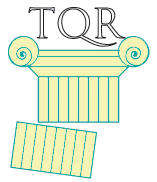Post by sturgeon on Aug 6, 2021 12:46:00 GMT
Religion feels to me inherently suspicious. Any philosophy that asserts its followers know better or deserve better than everyone who disagrees, strikes me as extremely toxic. One thing that religion can do for us is tell us stories of our past; by knowing our history we are better equipped not to repeat its mistakes.
In the case of this cap, the main character is gainfully employed as an archivist, which is about as harmless a role as a man of the cloth can have. Indeed, the greatest strength of this capital is its insight into the workaday lives and petty politics of everyday employees of the Catholic church.
The characters are interesting, which is a good thing, because the narrative relies heavily upon them for its substance. There is also a plot, but you have to wait until you're about 40% of the way through the nearly 9,000 words before you get the inciting incident - and you have to get a further 20% or so into it before the main character does anything about it.
That first 60% of the capital takes place across the course of a few days. Then, suddenly, the pace massively increases. The nasty vicar gets dismissed, we meet a nasty new archivist who lasts for about a page before she too is dismissed, and we continue at the blistering rate of a decade every page or two until the end.
It turns out, this tale is of the Monkey's Paw variety, with supernatural wish fulfilment at ironic cost. Unfortunately, that is the cap's weakest aspect, adding nothing new to the well-worn genre. In fact, it's frustrating that the main character only uses this power once a decade for entirely selfish and small-minded purposes - exclusively to remove fellow employees from his workplace. The predecessor wish-caster tried to avoid World Wars, and yet the most this guy can muster is to get a bishop to retire?
Most of the wish-targets get picked on for being mildly unpleasant or obstructive to the main character - the bishop at the end is something else, truly deserving of a comeuppance for covering up child abuse. And yet does our main character wish for a reckoning for the Catholic church? Or for the church to never again betray the trust of children? Nope, he merely wishes that "The bishop of Fredberg retires". Such moral vacuity fits firmly into my idea of religion, but dramatically very disappointing.
A no from me.
In the case of this cap, the main character is gainfully employed as an archivist, which is about as harmless a role as a man of the cloth can have. Indeed, the greatest strength of this capital is its insight into the workaday lives and petty politics of everyday employees of the Catholic church.
The characters are interesting, which is a good thing, because the narrative relies heavily upon them for its substance. There is also a plot, but you have to wait until you're about 40% of the way through the nearly 9,000 words before you get the inciting incident - and you have to get a further 20% or so into it before the main character does anything about it.
That first 60% of the capital takes place across the course of a few days. Then, suddenly, the pace massively increases. The nasty vicar gets dismissed, we meet a nasty new archivist who lasts for about a page before she too is dismissed, and we continue at the blistering rate of a decade every page or two until the end.
It turns out, this tale is of the Monkey's Paw variety, with supernatural wish fulfilment at ironic cost. Unfortunately, that is the cap's weakest aspect, adding nothing new to the well-worn genre. In fact, it's frustrating that the main character only uses this power once a decade for entirely selfish and small-minded purposes - exclusively to remove fellow employees from his workplace. The predecessor wish-caster tried to avoid World Wars, and yet the most this guy can muster is to get a bishop to retire?
Most of the wish-targets get picked on for being mildly unpleasant or obstructive to the main character - the bishop at the end is something else, truly deserving of a comeuppance for covering up child abuse. And yet does our main character wish for a reckoning for the Catholic church? Or for the church to never again betray the trust of children? Nope, he merely wishes that "The bishop of Fredberg retires". Such moral vacuity fits firmly into my idea of religion, but dramatically very disappointing.
A no from me.



